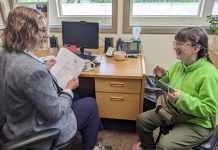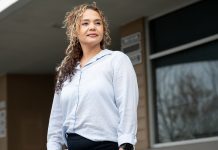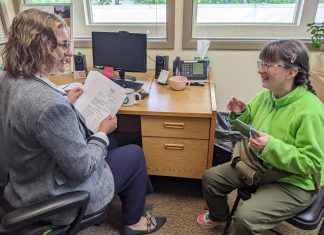In the summer of 2016, Ferndale resident Pat Flaherty went to a local ear, nose, and throat doctor for a hearing test prior to being approved for hearing aids.
After the test, the doctor also examined Flaherty’s mouth. He was shocked by what he saw: white papillomas or growths, covering the inside of Flaherty’s throat and mouth. Before long, the 66-year-old was diagnosed with throat cancer and sent to Bellingham’s PeaceHealth St. Joseph Cancer Center for treatment.
Flaherty underwent tonsil and soft tissue surgery, followed by 32 radiation sessions between August and November 2016. He lost 70 pounds and completely lost his sense of taste for a time, but the treatments put him into remission.
Still cancer-free today at age 73, Flaherty was aided not just by timely medical intervention, but by a range of patient support services available at the cancer center. From financial advocacy and social services to clinical trials, genetic testing, and nurse navigators who coordinate care between providers, patients can find plenty of help along their cancer journey.
“The care was absolutely top-of-the-line, every step of the way,” he says. “It was a family away from home.”
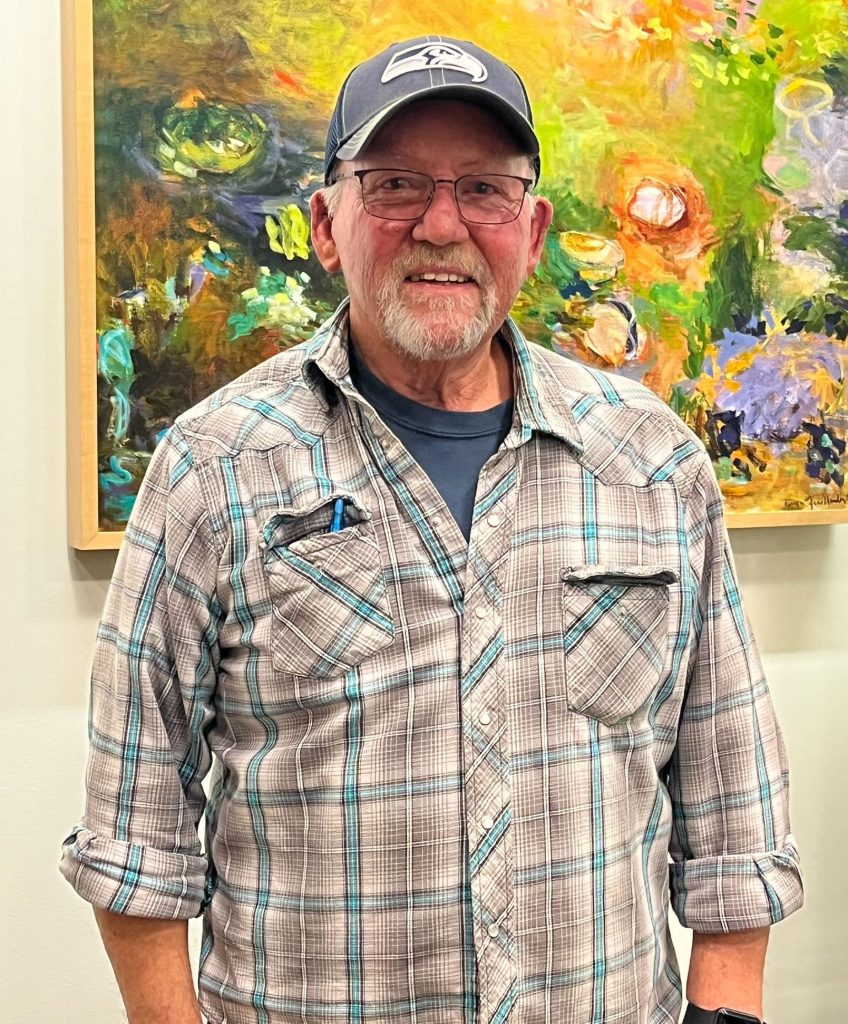
Multiple Levels of Support
During his treatments, Flaherty relied on nutrition classes to learn how best to stay nourished. Loss of taste diminished his appetite significantly, and Flaherty drank plenty of Ensure as an easy method for getting proper nutrition.
Carol Brumet, the cancer center’s outreach coordinator, says meal supplement shakes like Ensure are offered to any patient actively losing weight during radiation and chemotherapy treatment.
Flaherty also made use of massage therapy — one of the holistic therapies offered prior to the COVID-19 pandemic. Although some of these therapies haven’t yet resumed, popular weekly yoga sessions are occurring again.
But perhaps the most important service Flaherty utilized was support groups, which are offered for patients, caregivers and family members. At these meetings, participants receive practical and emotional support for illnesses in a safe and caring environment.
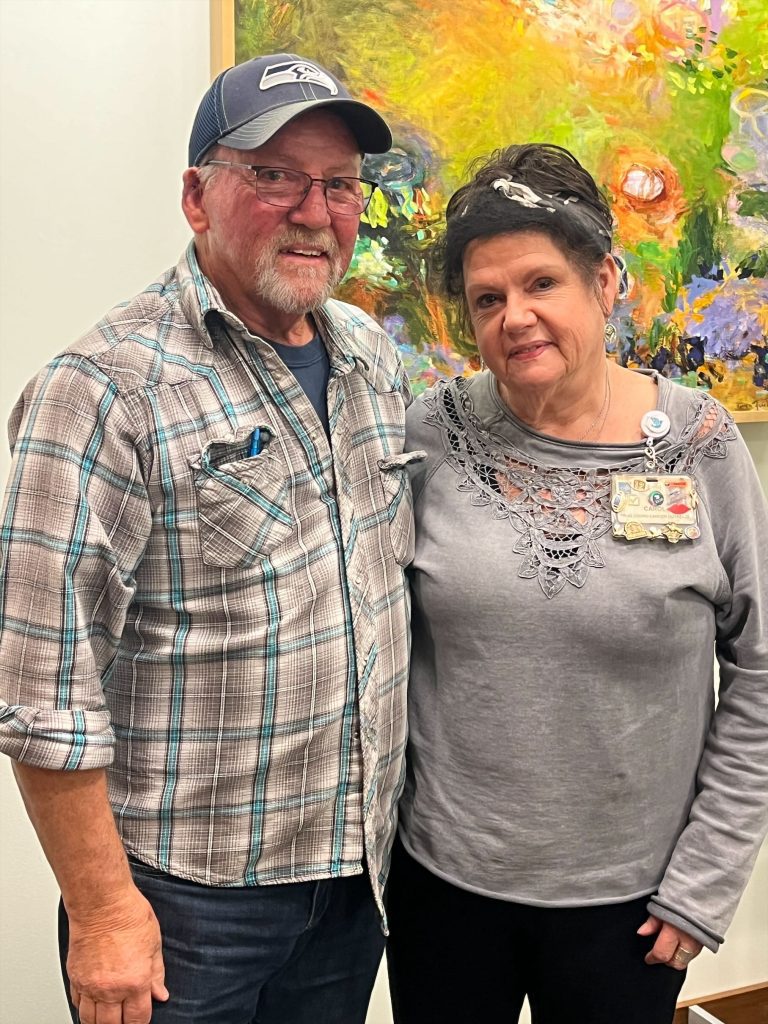
Flaherty attended a men’s cancer support group during his treatment. Barely two years later, he found himself joining another support group when his wife Karen — a longtime cancer center volunteer — was diagnosed with brain cancer. Despite various treatments, she passed away in September 2019 at age 62.
To this day, Flaherty is still involved with the brain tumor caregivers’ support group, essentially acting as a facilitator for new members.
“This is my part of giving back,” he says. “Because people are going through what I went through. You just need support from somebody that’s been in your shoes.”
Nurse Navigators Provide Helping Hands
Kim Moses — a PeaceHealth oncology nurse navigator — was among Flaherty’s first contacts after his diagnosis.
Nurses like Moses guide patients throughout their cancer journey and are often the first professionals a cancer patient speaks to after the initial delivery of cancer news at a doctor’s or surgeon’s office.
“We’re reaching out to people well before they’re in this building,” says Moses. “It’s a lot of allaying those [initial] fears: giving them education about their diagnosis, as well as planning.”
That planning includes logistics well beyond a basic course of treatment, says nurse navigator Kathy Millson. Transportation needs and insurance coverage are all part of the assessments navigators provide each patient, no matter their situation.
Millson once navigated for a blind homeless woman who lived in various motels. Despite extra hurdles, the woman received the treatment she needed along with wraparound social services outside the cancer center. Even when patients receive cancer treatment elsewhere, such as in Seattle, nurse navigators typically coordinate care with those institutions, she says.
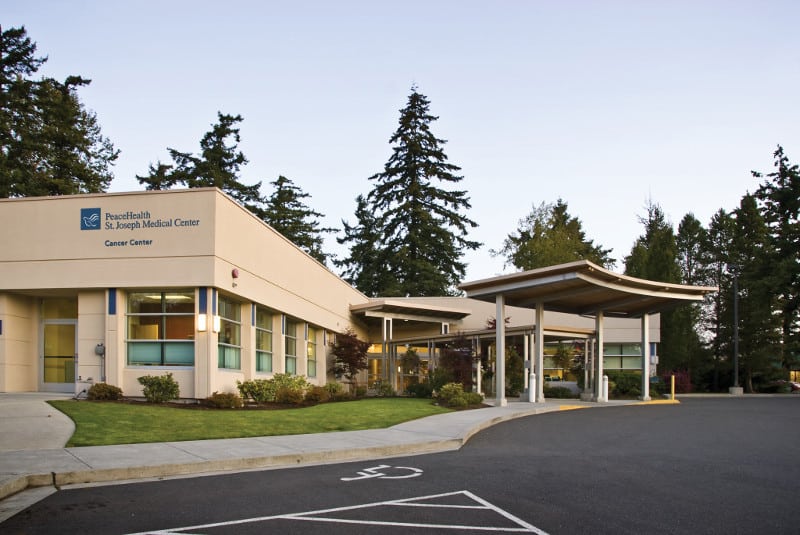
To Hannah Brown, a nurse navigator specializing in lung cancer, the ability to stand in a patient’s corner as they battle cancer is immensely worthwhile.
“It’s very meaningful to be able to provide that individualized support and advocacy for patients,” she says. “We meet them where they’re at — angry, calm, or scared. No matter what they’re feeling, we’re there as a support person and able to help them tailor their care for what their goals are.”
Matthew Smith, another nurse navigator, says cancer center financial advocates like Denise Bobb often receive some of the most emotional responses from patients when they find out their treatments are being covered without financial hardship to them.
“People are crying and hugging in the lobby,” he says. “It’s really neat.”
Patients at the cancer center can also get lab work done in-house three days a week, and access a resource library — staffed by kind and helpful volunteers — that offers plenty of knowledge and tips for adjusting to diagnoses and treatment regimens.
And while the pandemic involved plenty of fear and inconvenience for cancer patients, one lasting positive has been the increased use of telemedicine, both for patients and providers. Moses says that tumor boards — meetings where cancer cases are presented and discussed among multi-disciplinary teams — are now more efficient and better-attended when providers meet digitally.
While cancer can be life-altering and scary, comprehensive patient support services at PeaceHealth St. Joseph Cancer Center ensure that no patient walks their path alone.
“We love our patients,” says Brumet.
Featured photo: Kim Moses, Hannah Brown, Kathy Millson, and Matthew Smith are PeaceHealth St. Joseph Cancer Center nurse navigators who guide patients through their cancer journeys with all manner of support.
Sponsored




















